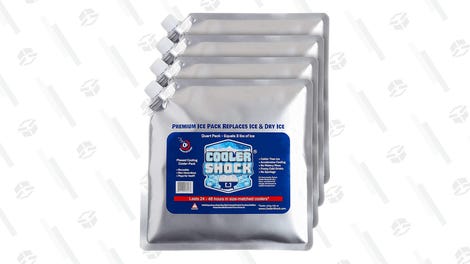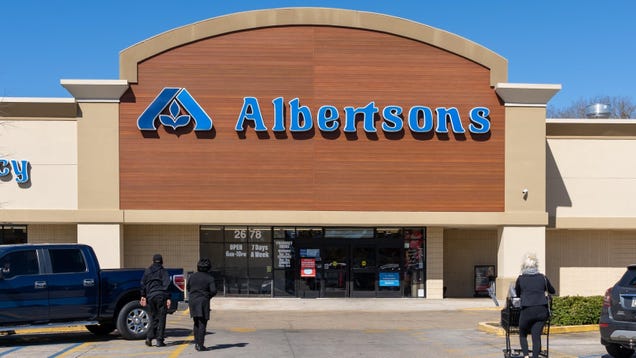The tea on the multi-billion-dollar merger of Kroger and Albertsons is only getting hotter, people. The two grocery chains are planning to sell off hundreds of grocery stores in an effort to appease the Federal Trade Commission while the agency reviews the merger, Reuters reports. The FTC is trying to sniff out whether the Kroger/Albertsons team-up would create a grocery monopoly that puts virtually all American shoppers at a serious disadvantage.
Since the October 2022 announcement that Kroger would purchase Albertsons for $24.6 billion, the entire merger has been under major scrutiny, both that of the public and the federal government. The joining of the two largest standalone grocery store chains in the nation has the FTC concerned over a lack of competition, which could lead to higher prices for consumers.
Merging Kroger, which has around 2,700 locations nationwide, with Albertsons, which has close to 2,300 locations, would give a single company control over approximately 5,000 grocery stores across the U.S. This would put the joint company in a better position to compete with Walmart, the top grocery retailer overall with 4,742 U.S. locations. But it also has the potential to raise prices on groceries, since smaller grocery chains with lower prices will be less likely to compete with such a huge corporation that can essentially charge whatever it wants in areas where alternatives are not available. Kroger promised in a statement that it will reinvest half a billion dollars from the merger into cost-saving measures for customers.
Why Albertson and Krogers plan might not work
For multiple reasons, Kroger and Albertsons plan to sell off some locations prior to merging. For one thing, fewer stores means less chance that the FTC will reject the deal on antitrust grounds. For another, many grocery workers’ unions oppose the merger on the grounds that it could lead to store closures and job loss throughout the industry. But the FTC has seen Albertsons pull these same clever moves before—and the results weren’t exactly rosy.
G/O Media may get a commission

10% Off
Cooler Shock Reusable Ice Packs
Keep it cool
Come as a set of five, are durable, and can help keep food and drinks chilled for up to 48 hours in the right environment.
Use the promo code Clip Coupon
Back in 2015, when Albertsons merged with Safeway, part of the agreement was that 168 stores would be divested. The selected locations were sold off to a smaller grocery chain, Haggen. Unfortunately, Haggen itself went bankrupt less than a year after—an outcome that the company blamed on being saddled with the Albertsons stores. So, Albertsons went ahead and bought back many of the same stores it had sold only months before. A skeptic might point out that it looks like Albertsons was just hiding a number of its stores in a competitor’s portfolio until they could be scooped back up post-merger.
The sale of the divested stores this time around could be worth a total of more than $1 billion, as estimated by Reuters. The Netherlands-based company that owns Stop & Shop and Giant stores might be an interested buyer. But whether Kroger and Albertsons sell off these stores or not, it’s a drop in the bucket—the merger of the two chains still has the power to create a monopoly in the grocery space.
THE FIRST E-COMMERCE SPECIALIZED ON TRUFFLES AND TRUFFLE PRODUCTS – TRUFFLEAT.IT

